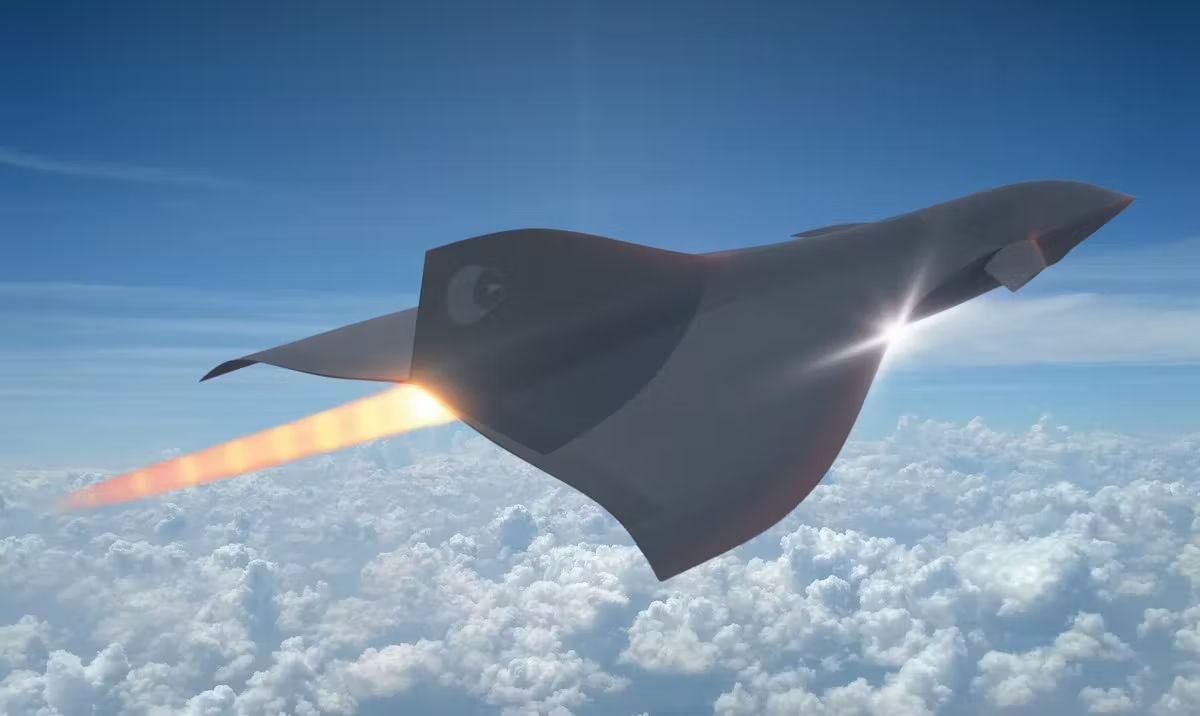
By George Allison,
Published by UK Defence Jounral, 19 July 2022
Reaction Engines, Rolls-Royce, the Royal Air Force’s Rapid Capabilities Office (RCO), the UK Government’s Defence Science and Technology Laboratory (Dstl) and the UK’s National Security Strategic Investment Fund (NSSIF) have announced new details of their joint programme to deliver significant hypersonic technologies.
The Hypersonic Air Vehicle Experimental (HVX) Programme aims to “establish the UK as a leader in reusable hypersonic air systems”.
The military value of “hypersonics” has increased considerably over the last decade with developments evolving in the United States, Russia, and China. Hypersonic speeds sit between supersonic and high-supersonic and require specially-designed vehicles. Examples include the American Boeing X-51 “Waverider” test aircraft and the Chinese DF-ZF glide vehicle.
Britain is to build an experimental 'Hypersonic Air Vehicle'. Rolls-Royce say that the 'Hypersonic Air Vehicle Experimental' (HVX) programme aims to "establish the UK as a leader in reusable hypersonic air systems". A single-engine hypersonic concept vehicle was unveiled today. pic.twitter.com/9XsnsaCRS6
— George Allison (@geoallison) July 18, 2022
According to Rolls-Royce:
“Supported by funding from NSSIF, a project team has been established to rapidly develop critical high-Mach/hypersonic technologies, including novel air-breathing propulsion architectures, innovative thermal management systems and advanced vehicle concepts. In addition, a full-scale experimental engine test campaign has now commenced.
HVX’s immediate objective is to rapidly mature technologies which can deliver a step-change reduction in the cost of developing a reusable high-Mach/hypersonic air vehicle. Reaction Engines’ novel precooler and SABRE combined-cycle engine technologies are key foundations for the Programme. In combination with Rolls-Royce’s world-beating gas turbine technology, this brings a formidable capability to take on the challenging problems inherent with hypersonic flight.”
Most notably, the programme is undertaking design work on experimental hypersonic vehicle concepts.
At the Farnborough International Air Show, a single engine hypersonic concept vehicle – “Concept V” was unveiled. This example vehicle is one of a number of concept designs in active development by the Programme.
“It is expected that the HVX Programme will be expanded to include other leading aerospace companies to ensure that additional expertise is deployed to support the delivery of this breakthrough technology. The Programme also aims to ensure that the technologies developed can be utilised by other high Mach/hypersonic applications, having synergy with space access and rapid point-to-point transportation.”
Air Vice-Marshal Linc Taylor, Chief of Staff Air Capability, Royal Air Force, said:
“This activity presents a unique opportunity to experiment with pioneering UK technology to inform the art of the possible and challenge traditional views on the cost and time associated with development and fielding of high-Mach platforms. This partnership benefits from a series of aligned initiatives, integrating world class skills and technologies on a series of near-term experimentations to inform our future capability planning.”
Mark Thomas, Chief Executive of Reaction Engines, said:
“Reaction Engines is excited to be leading this ambitious, future-focused, programme with the Rapid Capabilities Office and Strategic Partners, bringing together the best of the best in technology, talent and innovation, to provide the UK with a unique capability in reusable hypersonic systems”
John Wardell, Director Future Programmes, of Rolls-Royce, said:
“This collaboration will enable Rolls-Royce to work effectively alongside Reaction Engines and our strategic partners to develop innovative and cutting-edge technologies that will provide our customers with the equipment needed to meet their military requirements. The HVX Programme will bring together an unique opportunity to raise the UK’s profile in our ability to develop both the skills and technology in the fast evolving area.”
Steve Simm, Air Systems Programme Manager of Dstl, said:
“Dstl is pleased to be involved in this exciting project, through three main aspects: use of MOD research funding to understand potential air system concepts and their feasibility; exploring potential operational utility of these concepts; maximising exploitation of the wider S&T Portfolio, such as the Hypersonics Weapons Research Programme.”
See: Original Article





